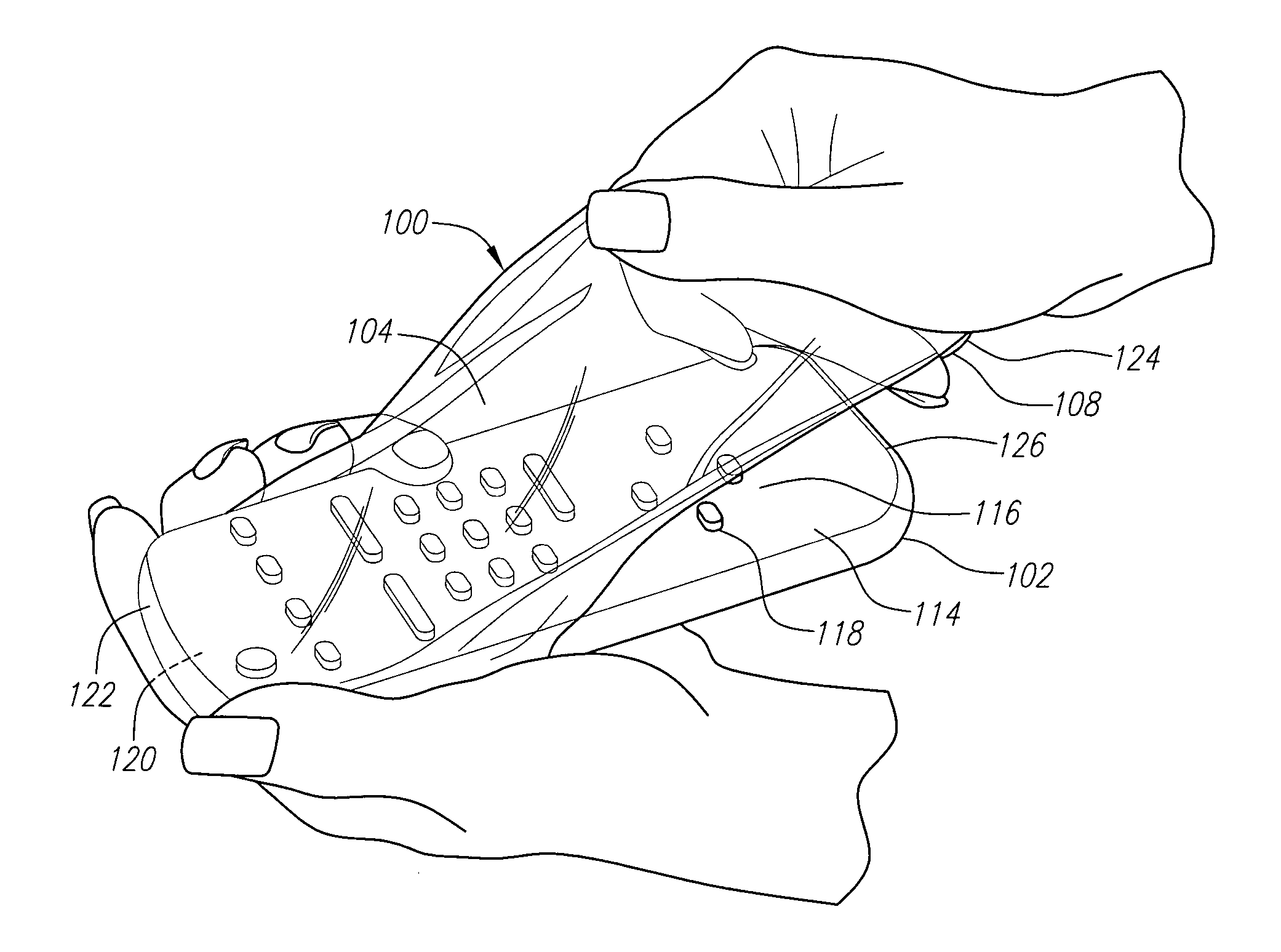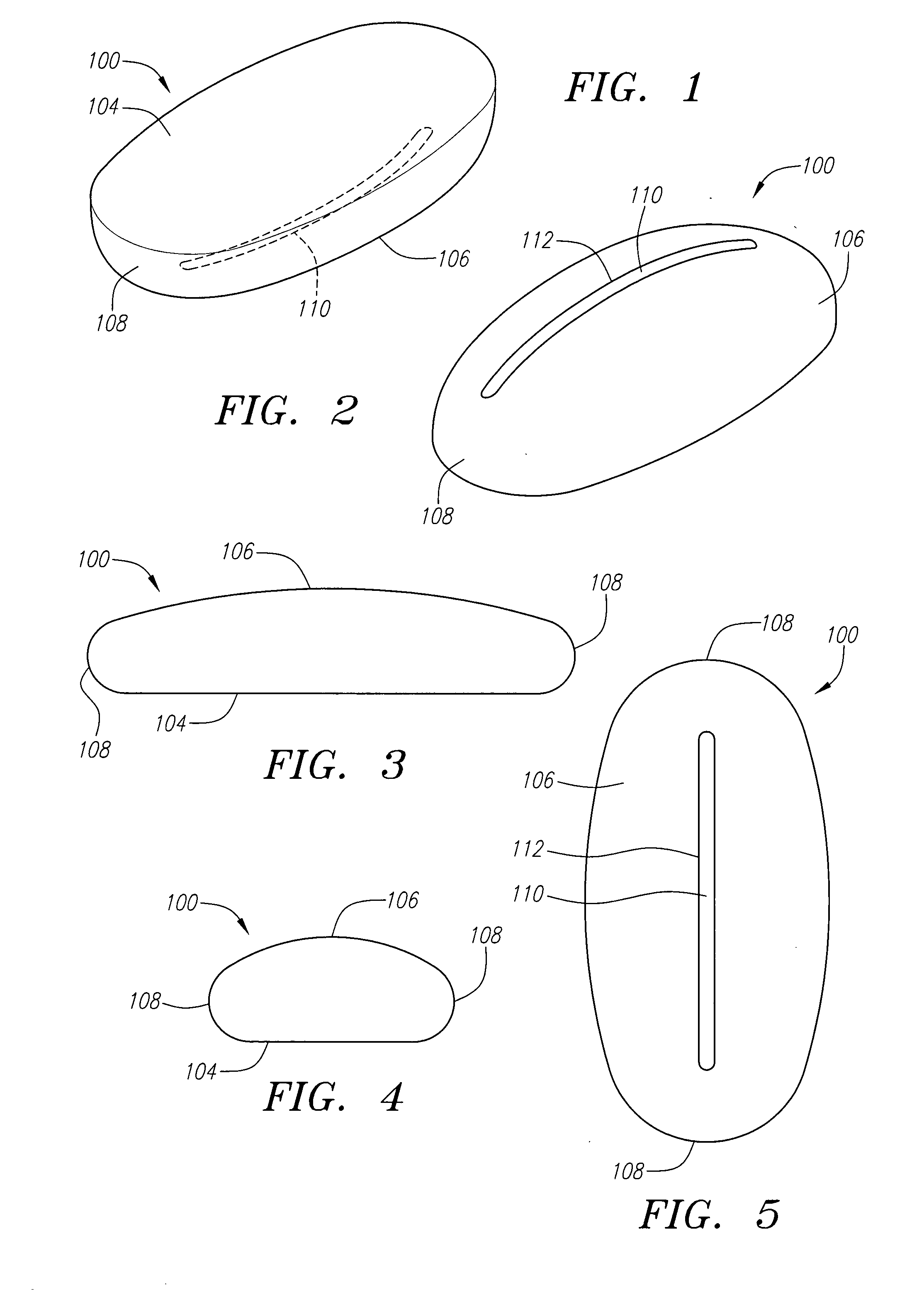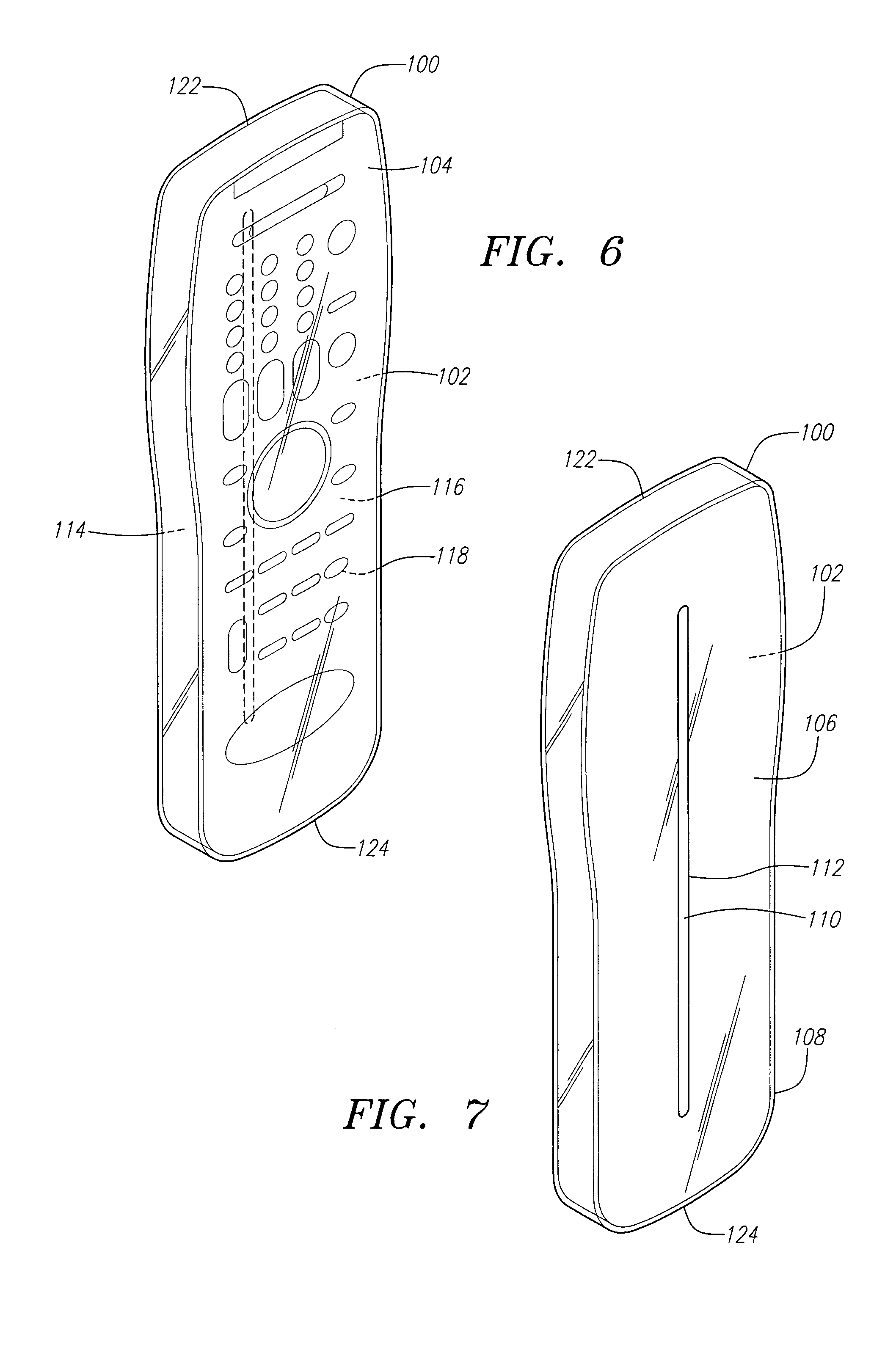[0009] Briefly, and in general terms, the present invention provides a new and improved cover for a remote control device for creating a convenient, disposable cover for enclosing any of a plurality of electronic remote control devices typically shared among many persons. The cover for a remote control device serves to minimize the transfer of
bacteria and viruses from one person who uses the remote control device to another, i.e., the cover provides a sanitation barrier. In particular, the inventive cover for a remote control device is comprised of a flexible-elastic, transparent material fashioned so as to easily conform to the shape of the remote control device. Further, the flexible-elastic transparent material facilitates the capture of the remote control device within the fabric of the cover. Likewise, the cover can be easily removed from the remote control device.
[0010] In general, the cover for remote control device comprises a sheath-like or pouch-like
enclosure that includes a front member integrally formed with a rear member at a plurality of rounded surfaces. An orifice or opening is formed in the rear member of the cover for facilitating the
insertion and removal of a remote control device. The front member typically exhibits a continuously flat surface. However, the shape of the rear member can vary depending upon the shape of the remote control device and thus, the inventive cover is necessarily available in several different shapes. The plurality of rounded surfaces that integrally join the front member with the rear member enable the flexible-elastic material from which the cover is fashioned to partially relax once the cover is fitted onto the remote control device. This relaxation of the flexible-elastic material enables the orifice to close upon itself ensuring that the cover substantially encloses the remote control device.
[0011] The cover exhibits an integral, unitary construction and can be comprised of, for example, a
polyurethane compound but many other suitable materials are also available. The selected material is flexible, elastic, i.e., stretchable, and thus quickly adopts or conforms to the shape of the remote control device. Thus, once fitted, the cover snugly fits over an outer housing of the remote control device. A typical remote control device, whether used for a television, stereo
system,
hospital bed control or other manual electronic control device, includes a control keypad. Manipulation of the keys mounted on the keypad facilitates the control of the specific electronic device. The selected material from which the cover is fashioned is also transparent. Thus, once fitted onto the remote control device, the transparent nature of the inventive cover facilitates unimpeded operation of the keys mounted on the keypad. The inventive cover for the remote control device serves several functions. Since the remote control device is typically shared between, i.e., handled, by several persons, the cover functions to prevent the transfer of
bacteria and viruses between individuals. Thus, in a quasi-public setting as in a hotel or motel environment, the cover would normally be changed daily along with the
bed sheets. In a domestic setting, the cover could be cleaned regularly with a suitable disinfecting cleaner product. The cover also serves to protect the electronic circuitry of the remote control device from
dirt, soil, spills and grime. Thus, the inventive cover establishes a sanitation barrier to protect both the plurality of users of the remote control device and the electronic circuitry housed within the remote control device.
[0012] In a preferred embodiment, the cover for the remote control device in its most fundamental form comprises a front member which exhibits a generally continuous flat surface and a rear member having a curved surface. The rear member is integrally joined with the front member at a plurality of rounded surfaces for forming an enclosure. An orifice is formed in the curved surface of the rear member for enabling a remote control device to be inserted into and removed from the enclosure. The rounded surfaces designed into the cover facilitate the closing of the orifice for enclosing the remote control device. The front member, rear member and rounded surfaces are each comprised of a flexible, stretchable and transparent material for conforming to the shape of the remote control device and for providing a sanitation barrier.
[0013] In a first alternative embodiment, the cover for the remote control device comprises a front member which exhibits a generally continuous flat surface and a rear member having a converging surface. The converging surface comprises a first slanted surface and a second slanted surface. The rear member is integrally joined with the front member at a plurality of rounded surfaces for forming an enclosure. An orifice is formed in the converging surface of the rear member for enabling a remote control device to be inserted into and removed from the enclosure. The rounded surfaces designed into the cover facilitate the closing of the orifice for enclosing the remote control device. In a second alternative embodiment, the cover for the remote control device also comprises a front member having a generally continuous flat surface and a rear member having a rectangular surface. The rear member is also integrally joined with the front member at a plurality of rounded surfaces for forming an enclosure. An orifice is formed in the rectangular surface of the rear member for enabling a remote control device to be inserted into and removed from the enclosure. The rounded surfaces facilitate the closing of the orifice for enclosing the remote control device.
 Login to View More
Login to View More  Login to View More
Login to View More 


